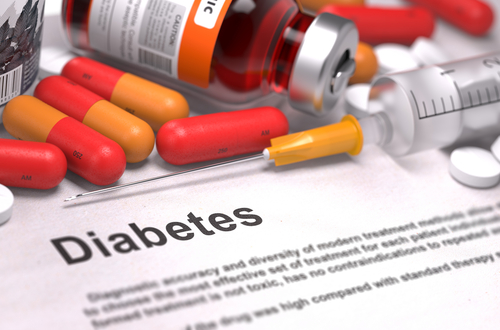 A Mayo Clinic study suggests laboratory findings do not tell the whole story of how the diabetes drug metformin works to limit the level of glucose in the blood. The researchers found that metformin does not limit the action of the hormone glucagon, specifically glucagon-stimulated glucose production from the liver. The article appears in the journal Cell Reports.
A Mayo Clinic study suggests laboratory findings do not tell the whole story of how the diabetes drug metformin works to limit the level of glucose in the blood. The researchers found that metformin does not limit the action of the hormone glucagon, specifically glucagon-stimulated glucose production from the liver. The article appears in the journal Cell Reports.
“In our clinical trial, metformin treatment appeared to trigger a compensatory increase of glucagon that may mitigate the ability of metformin to lower glucose production in prediabetic individuals and prevent the likelihood of hypoglycemia,” explained K. Sreekumaran Nair, M.D., Ph.D., Mayo Clinic endocrinologist and senior author of the article.
Metformin’s action is generally related to the release of glucose from the liver. The liver releases glucose when prodded by a pancreatic hormone called glucagon. Glucagon is released when blood glucose levels drop. Metformin is thought to limit the action of glucagon, the substances used to make it, or affect the level of enzymes used to make it.
Yet that’s not what Dr. Nair and colleagues found in their double-blind study of nine prediabetic individuals.
The researchers found that for the six individuals with fasting (basal) glucagon levels of less than 150 picograms/milliliter, metformin treatment decreased the liver’s production of glucose as expected. But for the three individuals with basal levels greater than 150 pg/mL, levels of glucose produced by the liver actually increased after metformin treatment.
This contradictory finding may be due to both the study design and participants. Unlike previous preclinical metformin research, this study used human participants and metformin at therapeutic doses. Studies in animal or cellular models have examined higher doses, or used drugs in the same class as metformin that are not approved for use in humans. Also, unlike many other human studies based on participants with type 2 diabetes, the current report is based on prediabetic individuals.
More research on a larger and more diverse group of patients is needed before the findings can be widely applied.
Source: Mayo Clinic
Filed Under: Drug Discovery



